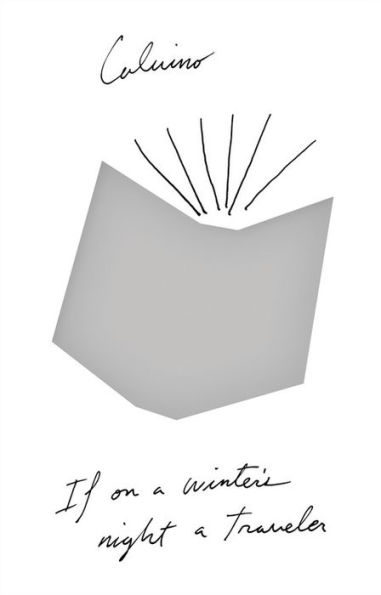
What are your favorite books about books? Why are these books such a ferocious pleasure? Maybe it's their range: books on books can combine memoir and criticism (see Rebecca Mead's 'My Life in Middlemarch' or Janet Malcolm's 'Reading Chekhov'), history and sociology (Alberto Manguel's 'A History of Reading'), humor, travelogue, astute observation, and who knows what else (Elif Batuman's 'The Possessed'). Tell us about your favorite for the latest installment of the NBCC Reads series, which draws upon the bookish passions of NBCC members and honorees and is curated by Alan Cheuse Emerging Critic Natalia Holtzman. (The series dates back to 2007; you can explore the archive here.) Submissions can be 500 words or fewer and should go to nbcccritics@gmail.com.
Just now, a colleague has asked you to recommend a favorite book about books for a new web series.
Breaking away from your computer, you seek an answer to your right, near now-cold coffee, in the teetering booktower marked “dissertation materials.” One title on mimesis, another on historiography, three on racial formation, nine on jazz theory. Gems all; no cigar.
An hour later, in wild-eyed dinner conversation with your partner, a title presents itself, suddenly, as if bursting from the ether of memory. It’s a book you read years ago, in the haze of undergraduate study: Italo Calvino’s If on a winter’s night a traveler.
You snatch it off the shelf, eager to remind yourself of its fractal structure. You crack the spine and pass over the first paragraph: “You are about to begin reading Italo Calvino’s new novel, If on a winter’s night a traveler. Relax. Concentrate. Dispel every other thought…”
You smile and oblige, reminiscent.
The novel opens with a character named “You.” “You,” in chapter two, begins to read a novel entitled If on a winter’s night a traveler, becoming hooked by its wispy mysteries. Yet just when that narrative signals its oncoming turn, its revealing climax, it breaks off, the ending deferred.
“I remember this,” you think, trying to decide whether or not to recommend this book as part of your colleague’s new series on books about books. “I also remember these,” you think, running your hand over cryptic marginalia that, today, read as the runes of a harried scribe.
You continue reading. “You,” miffed, attempts to locate the end of If on a winter’s night a traveler by returning to the bookstore where he bought his copy. (There, he meets another reader, Ludmilla, who is on a similar quest.) When “You” finally obtains a new copy of the novel and begins reading, he discovers, suddenly, that it bears no resemblance whatever to the novel he’d started.
You read these pages from the couch, and you remember the pattern: each of those novels within Calvino’s If on a winter’s night a traveler is unfinished, the narratives broken off “at the moment of greatest suspense.”
You proceed, the night growing more still. You become transfixed by a thread unifying the two protagonist-readers, “You” and Ludmilla, both searching for the end of the story, albeit for different reasons. You marvel at the themes covered—fraud, conspiracy, state power, print culture, authorship. You smile at the questions raised: Which is the “real” novel? How do any of them end? Why are you compelled to know? You recall a conversation with your partner, now gone to bed, who recently finished The Arabian Nights. “Calvino’s novel,” you think to yourself, “is a retooling of Scheherazade’s arabesques, a repurposing of resolutions deferred nightly for self-preservation. For Scheherazade, narrative is a tool for survival. But what is it here?”
At a chapter break, you check your phone for notifications—a nervous tic you’ve become more aware of, some chapters into Calvino’s metafiction. You then realize there’s an investigative element of this novel that feels removed from the present. That is: the novel’s protagonists physically venture out in search of endings eluding their grasp; they travel to a variety of sites—a brick-and-mortar bookshop, a humanities department, a publishing house, a personal library—all in pursuit of resolution. “Who would go to such lengths today?” you think, sipping over-steeped tea. “What would they search for?”
You think that this is some of what makes the book interesting in 2018—why it might be a good fit for your colleague’s new series on books about books. “An older flavor of reading experience,” you jot down on junk mail. “Before attention was conquered.”
Your mind drifts to other metafictions you’ve read recently—the whirling People of Paper by Salvador Plascencia, the magisterial, interruptive Caramelo by Sandra Cisneros. (“But the approach in those novels,” you write, “is expressly decolonial. While they are not ‘anti-writing’ or ‘anti-reading,’ they project an informed wariness over what printed words can cleave from writers, a guardedness against what Plascencia, in his novel, calls the ‘commodification of sadness.’”) Your mind swims in half-dreams as you reach for Calvino’s novel. What metafictions are possible today? What are we searching for?
You pick up reading, racing now toward the end of a novel growing increasingly grating. Because now, many chapters and fragments in, you recall fully the novel’s fatal flaw: its caustic male gaze. (“Hamartia,” you once noted in the margin.) You track how it warps all relations and representations, all modes of sociality and interiority, bending virtuosic invention into normcore hetero fantasy. You find it unbearable, tiresome. You wish, as you are propelled by the alchemies of the novel’s form and the promise of its eventual payoff, that the organizing consciousness weren’t so hopelessly heteroblivious.
You wonder, frazzled, why you still admire this deeply flawed object, more distant from you now than ever; you finish it, expecting an answer, though find it, too, deferred.
“What do you think you’ll say about Calvino’s novel?” your partner asks before leaving for work.
“No clue yet,” you reply. “But I will recommend it as part of my colleague’s new series on books about books.”

